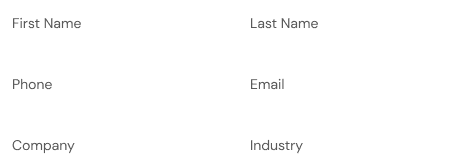
It’s no secret that remote work is often a touchy subject between bosses and workers. Following the global pandemic, bosses from some of the world’s biggest companies actively tried to pedal a return to the way things were, at odds with workers who had adapted to - and wanted to keep - the benefits of working remotely, some or all of the time.
These clashing opinions mainly boil down to one thing: productivity.
Bosses believe employees work less hard at home. Employees feel the opposite. In fact, a recent study by Microsoft found that some 87% of staff argue they're just as productive, if not more so, when working from home, however, 80% of managers disagree.
The issue, then, is not the work itself, but that of trust.
For many managers, visibility acts as a referencing tool. If your employees are in the office at a desk, they must be working. If your employees are at home, you don’t have this confirmation. But, as any employee will be able to tell you, visibility is not an accurate representation of productivity.
Plenty of people have found that, as they are forced to be in an office for a required number of hours per day, they fit their workload into this timeframe. When working from home, however, employees fit the same amount of work into a shorter period of time, because they have the freedom to use that remaining time how they wish.
So, how can we break the mistrust between bosses and employees when working remotely? The answer lies, unsurprisingly, in communication and reporting. It is perfectly possible to properly monitor not just the performance, but also the wellbeing, attitudes and workloads of your employees with proper communication that factors in different cultures and ways of working.
If managers delegate clear tasks, deadlines, reporting methods and KPIs, having oversight of productivity becomes a given—whether you’re working remotely or not. Similarly, if you are maintaining a dialogue with employees about attitudes to corporate culture, workloads and HR-related issues, you will have a clear indication of how to improve and maintain a positive, productive workplace culture.
Productivity paranoia is a vicious cycle. The less workers are trusted by bosses, the less inclined they are to do their best. We end up with a genuine lack of productivity, based on the fear of unproductivity.
For any bosses or managers that are struggling to trust their employees, or are prone to micromanagement, why not experiment with giving your employees more trust, while streamlining your own methods of communication and reporting?
You might just find that you not only gain back your trust with the idea of remote work, but also foster better connections and relationships with your colleagues on a more personal level.
Spending Too
Much Time
Onboarding?
your remote hiring in the
Philippines, excellently.
Say Goodbye to High Costs!
Request Your Free Consultation Today andSave a Massive 70% on Your Workforce!

Ready to thrive in a remote-first work environment?


